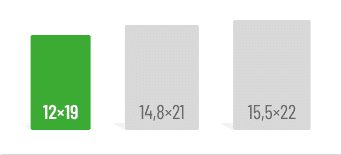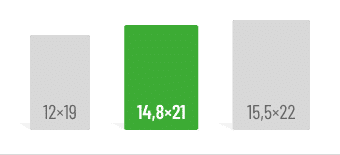First things first:
Failure is part of the writing process: Setbacks are not a sign of lack of talent, but part of the creative path and often a learning step towards success.
Continuing is crucial: Successful authors such as Colleen Hoover or Andy Weir have drawn strength and new opportunities from failures.
Overcoming blockages: Instead of sticking to perfection, trial and error, a change of perspective and constant writing help to move forward.
Success comes from experience: Each failed manuscript brings you closer to your own voice and audience.
From the outside, it often seems so simple: A book is written, published – and immediately ends up on the bestseller lists. But those who write themselves know thatt he path to get there is rarely straightforward. Between the first idea and the celebrated novel there are often years of doubt, rejection and, last but not least, failure.
In conversation with the author and journalist Alexander Krützfeldt (interview from 9 May 2025 at the Bookerfly Authors’ Camp), it became clear that failure is hardly talked about in the book industry – and yet it is an integral part of every author’s career.
Failure as a taboo topic – and why we should break it
In social media, we almost exclusively see the shiny moments: book contracts, launch parties, good reviews. The many discarded manuscripts, the rejected synopses, the writer’s block – these are rarely talked about. Failure is part of the creative process. In the USA, it is almost a sign of quality: those who have failed have dared to do something and learned from it. In Germany, on the other hand, there is often a stigma attached to failure – as if it were a sign of a lack of talent.
“Coming to success in a straight line is very rare. The experiments behind it are invisible.” – Alexander Krützfeldt
Perhaps the celebrated bestselling author wrote five novels before his big breakthrough that no one wanted to read. We just don’t find out. It is precisely these stories that would encourage other writers to keep at it.
Failure as a a boost
An exciting thought that Krützfeldt emphasized in the interview: You can also “fail your way to the top”. Every failed project is an experiment that teaches us what works – and what doesn’t. There is even a downside to success: Some authors land a surprise hit with their debut, but hardly anyone buys the following five books. This shows that it is not the one “lucky hit” that is decisive, but the ability to get up again and again, rewrite and carry on.
Well-known self-publishing authors and their setbacks
Jasmin Romana Welsch
| Rachel Abbott
|
Andy Weir
| Colleen Hoover
|
Carrying on when everything collapses
How do you find the strength to continue writing when your faith is faltering or external circumstances make writing seem impossible?
- Therapeutic support can help, especially in phases of doubt.
- Growth happens through challenges, not through praise. Every failure is an opportunity to become stronger.
- Desire to try things out: Those who remain open to new genres, forms or writing methods often discover completely new sides to their own talent.
One sentence from the conversation is particularly memorable:
“Nobody says on their deathbed: I’m annoyed that I wrote a bad book. But many regret never having written a book.”
How do I deal with blockages?
Writer’s block is a common reason why writers give up. But it often helps to take a step back and question what you are really failing at:
- Isn’t the genre the right one?
- Is the right writing environment missing?Do you need variety and new impressions or consistency and a fixed place?
- Do you hold on too much to your own image as an author and don’t dare to try new things?
It is particularly dangerous to spend years working on a manuscript without ever publishing anything. Holding on to one’s own book can become a dead end.
Tips for a new start and for beginners
Krützfeldt recommends that aspiring authors in particular train writing in everyday life:
- A “black bread job” in journalism is an excellent school: it brings discipline, teaches how to write for a public and facilitates access to agencies.
- Think about it early on: Who am I in public and how do I want to present myself?
- Do, do, do: Write a lot and often.
Modern aids can also be used sensibly:
“AI will never replace authors, but it can help develop plots, sharpen premises or review texts.”
An unusual tip: Have an AI evaluate your texts from a certain perspective, e.g.: “How does this paragraph affect a 72-year-old kiosk owner?” Such experiments sharpen the feeling for different readerships.
Conclusion: Success is rarely straightforward
Failure is part of writing – and is not a flaw, but a necessary part of the learning process. Those who write do not grow from praise and prizes, but from the moments when it is difficult. Every manuscript that fails brings you closer to your voice, your audience, and your success. The real failure is not to write a book that flops – but not to write it in the first place.
What’s next for you?
Failure is part of it – but even more important is to take action. If you have finished your manuscript or finally want to pluck up the courage to publish, GRIN offers you the perfect platform: easy and fast uploading of your manuscript, personal support from upload to publication, support with cover and layout. Start now: Upload your manuscript and bring your book into the world!










